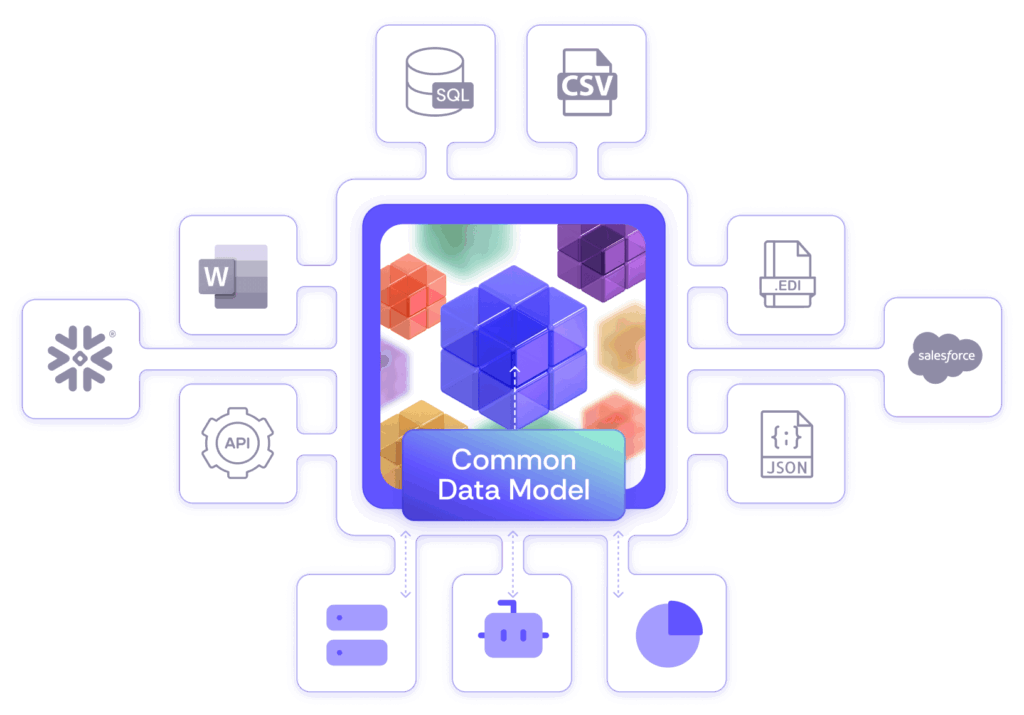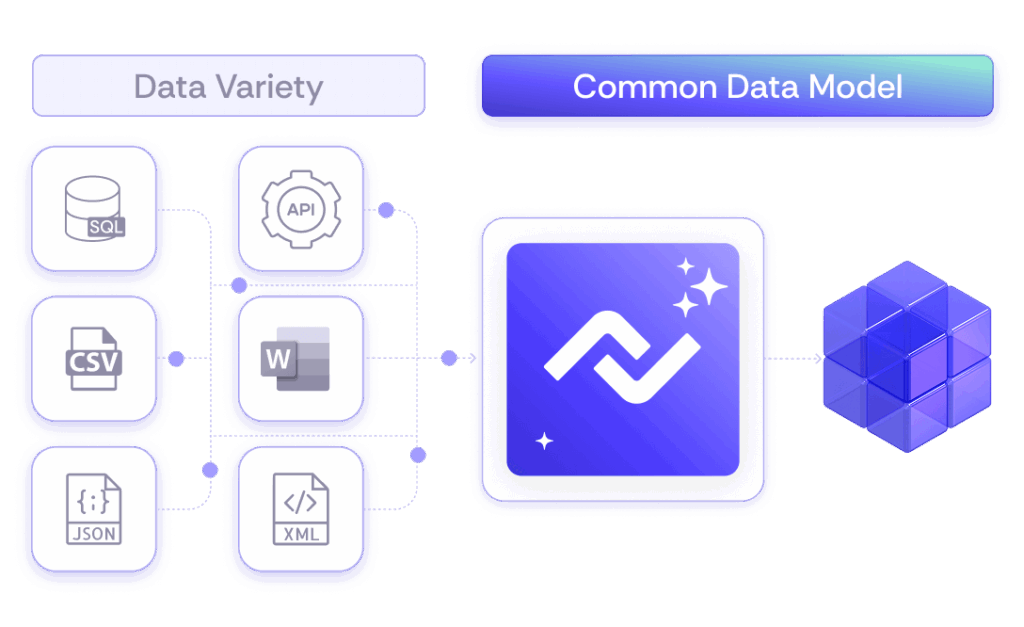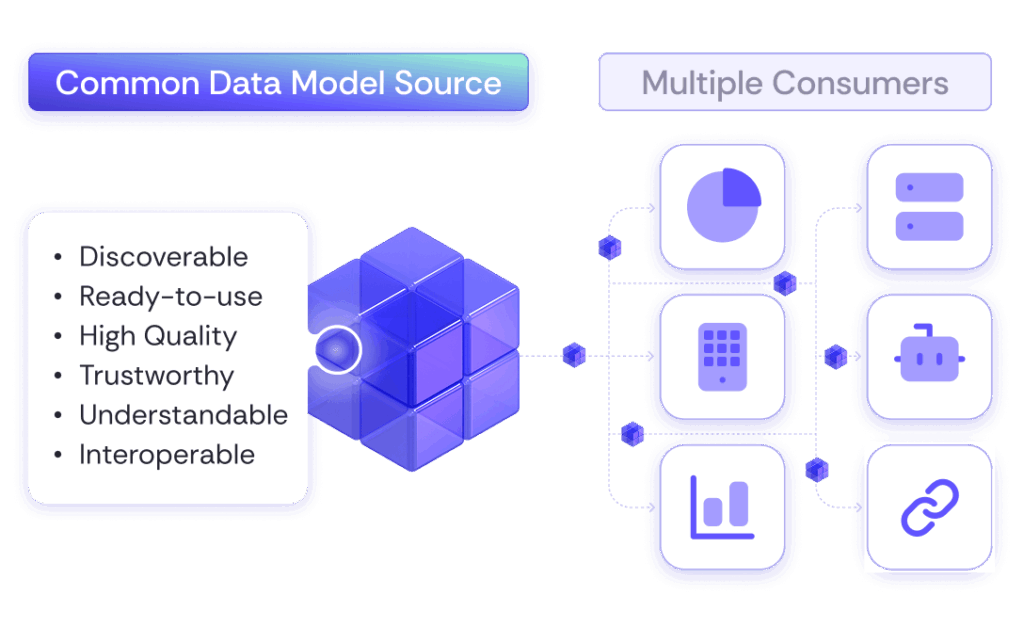Common Data Model
Transform data variety and silos into unified, standardized data.
Transform data variety and silos into unified, standardized data.

A Common Data Model (CDM) is a unified data structure that standardizes how information is organized, formatted, and understood across different systems and applications.
Modern enterprises struggle with fragmentation as similar information is often structured differently across different systems – attribute naming, data schema, format, validations etc.
Nexla’s CDM solution automatically transforms heterogeneous data from diverse sources into a consistent, reusable structure, eliminating schema complexity and accelerating AI initiatives.

Simplify Consumption Downstream
Decouple your downstream consumers from new sources of data variety. With a Common Data Model, you can bring new sources of data with completely different data models without impacting your downstream consumers.
Your applications, analytics & BI tools, APIs, AI/ML models, and data warehouses always receive data in the same consistent format—regardless of how many new sources you add or how complex their original structures are.

Break down data silos by creating reusable data products that teams can discover and share. Domain experts and data engineers collaborate seamlessly using standardized templates and self-service tools.
CDMs enforce consistent data validation rules and contracts across all sources. Define quality standards, business rules, and compliance requirements once in your CDM, and they automatically apply to every new data source—ensuring uniform data integrity as your ecosystem scales.
Evolving schemas and version control adapt to changing business needs. Your CDM grows with your organization while maintaining backward compatibility and seamless migrations.
Create and define your organization’s Common Data Model using Nexla’s flexible schema templates. Establish standardized structures for common business entities like customers, products, transactions, and events that can be reused across all data sources and teams.
Nexla’s intelligent mapping engine automatically understands incoming data and maps it to your CDM structure. Machine learning algorithms analyze field names, data types, patterns, and relationships to suggest optimal mappings, reducing manual configuration by 90%.
Deliver CDM-standardized data directly to your databases, data warehouses, and applications in their native formats. Downstream systems receive clean, consistent data without needing to understand the complexity or variety of upstream sources.
Every CDM element includes comprehensive semantic documentation—business definitions, data lineage, usage examples, and relationship mappings. This living documentation ensures teams understand data meaning and context, strengthening data governance and collaboration.
Define validation rules and data contracts once in your CDM, and they automatically apply to all new data sources. Quality checks, business rules, and compliance requirements are enforced consistently, ensuring data integrity as your ecosystem grows.
As schema changes or new data sources emerge, Nexla automatically adapts downstream schema. Smart schema evolution handles new fields, data types, and relationships while maintaining backward compatibility and preserving existing integrations.
Companies use Nexla to onboard customer, partner data sources, integrate applications, databases, and data warehouses for AI, operations, analytics use cases.
Handle data variety across 100s of data sources to create agents with Nexla’s agentic AI framework. No coding required. Leverage LLMs and vector databases for agentic RAG, and evaluate multiple models to optimize AI accuracy and costs.
Accelerate customer, supplier, and partner onboarding by conquering variety across internal and external apps, APIs, and data with the only AI integration platform that accesses, transforms, and integrates any data in any format.
Don’t wait for new data. Access variety of structured or unstructured data in any source. Then use ELT, ETL, APIs, streaming, or any other integration styles together to load data warehouses, databases, even spreadsheets on your own without coding.
Quickly turn any data variety across apps, APIs, DBs, and files into data products and common data model. Use workflows and any integration style – ELT/ETL, R-ETL, API integration, (S)FTP, streaming, and more – to integrate apps and keep data in sync.